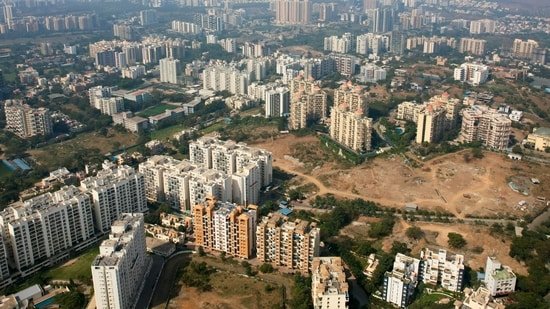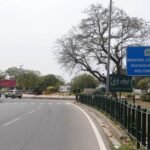The National Consumer Disputes Redressal Commission (NCDRC) has ruled that an offer of apartment possession without an occupancy certificate (OC) does not amount to a legal offer, reaffirming homebuyers’ right to seek refunds in delayed housing projects.

The order came in a case against Jaipur-based developer Mantra Lifestyle Homes Pvt Ltd, where the project, Unique Apex Towers, was delayed by approximately four years, and at least seven homebuyers had approached the NCDRC for relief.
“The complaint is partly allowed and the opposite parties are directed to refund the deposited amount of the seven complainants with interest at the rate of 9% per annum to the complainants from the date of respective deposits till its realisation, within a period of eight weeks from today, failing which, the interest shall be enhanced to 12% per annum,” the NCDRC order said.
Possession of the flats was offered to homebuyers without obtaining the mandatory Occupancy Certificate (OC), which certifies that the building is fit for occupation. As per the ruling, such an offer of possession is not considered valid. Homebuyers, therefore, have the right to refuse possession in the absence of an OC and can legally claim a refund of the amount paid, along with applicable interest or compensation, Chandrachur Bhattacharyya, the advocate representing the homebuyers, told HT.com.
The case
The project, located in Jodhpur, Rajasthan, was launched around 2012–13, and its units were sold before 2014, with sale agreements executed concurrently. According to Bhattacharyya, the developer had promised to hand over possession by November 2021, but the project has faced prolonged delays.
“The buyers had fulfilled all their obligations years ago, yet the promised possession date of November 2021 came and went without delivery,” he said. “Despite repeated assurances, the builder failed to obtain the required Occupancy Certificate, leaving purchasers in uncertainty even after years of waiting.”
“It is alleged that, as the occupancy certification has not been obtained by the opposite parties (developer) as of the date of filing the complaint, the complainants (homebuyers) are entitled to compensation for delay at the rate of 9% per annum, the NCDRC order reads.
The developer, in response to the complaint, argued that a “permissive possession of flat no. B-601 was offered to some of the buyers, but they did not take possession as they failed to clear the outstanding amount.
Therefore, the developer argued that the ₹36.44 lakh paid for this flat should not be counted when determining the total value of the case, saying the “complaint lacks pecuniary jurisdiction and the same is liable to be dismissed for want of pecuniary jurisdiction.”
The developer also stated that none of the other buyers adhered to the agreed-upon payment schedule. According to the developer, this delay in payments affected the project’s cash flow and slowed down construction progress.
He further argued that the project’s delay was caused by force majeure events, including COVID-19 disruptions and the ban on Bajri (river sand) imposed by the Supreme Court and the Rajasthan High Court. Bajri is used in construction for concrete, road laying, and foundations, as it provides strength, stability, and drainage.
A list of questions has been sent to the developer. The story will be updated if a response is received.
The order
Examining the evidence submitted by the developer, NCRDC noted that they have not provided any documentary evidence to demonstrate that they have obtained the occupancy certificate from the relevant authority.
“Therefore, the offer of possession of the flats to the complainant does not amount to a legal offer. Since the complainants have claimed more than ₹2 crores, the complaint is well within the pecuniary jurisdiction of this commission. Hence, the contention of the opposite parties that the complaint lacks pecuniary jurisdiction is rejected,” the order said.
Regarding force majeure, NCRDC stated that the first payments were made between 2012 and 2015, and the agreements were concluded between 2013 and 2016.
“Even if, for the sake of argument, the Covid period is excluded, there was a huge delay in handing over the physical possession of the flats. As regards the ban on bajri, it is the responsibility of the opposite parties to make arrangements for bajri,” the order said.
The Commission observed that the developer themself admitted in their written arguments that there was indeed a delay in handing over physical possession of the flats to the homebuyers. It further noted that the builder had kept the complainants’ money for an unusually long time without delivering the promised homes.
“In view of the same, the complainants are well within their rights to seek the refund of their respective deposited amount along with reasonable interest,” the order stated, emphasising that the prolonged delay and non-delivery justified the buyers’ demand for repayment.




